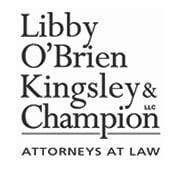Do you want a way to find some peace of mind in these troubling times?
Would you like a way to establish direction and provide a future for your family and loved ones? You certainly want a way to determine who will be the guardians for yourself and your children in the event you cannot – right?
It is not as complicated or mysterious as you may think. With a few well drafted documents, you can have a solution to these concerns. They are (1) a Simple Will; (2) a Durable Power of Attorney; (3) a Health Care Directive, Proxy and or a Living Will; and maybe a Revocable Family Trust.
You do not have to be an oil baron, a tech millionaire, or an entrepreneur/billionaire to have these legal documents! You do not need expensive and complicated credit shelter, generation skipping, or asset protection Trusts that are as complicated and expensive as they sound.
The law of Wills, Trusts and Estates exist for all of us, regardless of how much we own, or what we own. For example, if you die without a Will, your state legislature has already decided by statutory law, who gets what when you die – regardless of what you may have wanted – it’s called dying “intestate” or, without a Will. If you have minor children, the state may decide, depending on the circumstances, who will care for them, usually after conducting costly and sometimes lengthy court hearings.
Wills and Trusts
A Will is a legal document that when correctly drafted and executed, directs someone you choose, called a Personal Representative (the old term is Executor) to collect, account for, and distribute the assets you owned at the time of your death to the persons or charities who you decide should receive them. It can also provide direction as to who should be the guardian of your minor children.
Sometimes preparing a Will that pours over certain assets into a Revocable Family Trust may fit your specific needs. For example, if you have minor children, you can set certain milestones so that a child receives 1/3 of their share of their inheritance when they are 25 years of age, another 1/3 share at age 30, and the remainder when they reach 35 or 40 years of age. That way, say a 19 or 20-year old, will not have the opportunity to blow their entire inheritance at one time. These Trusts are revocable, meaning that as long as you are alive, you can revoke the entire Trust or change any part of it as circumstances change. In other words, it is not written in stone to last unchanged forever. You also get to choose in advance who will be the Trustees of your trust (… just like an executor in a will), the person(s) who will be in charge of seeing that your wishes in the Trust are carried out. Trusts do not go through probate, so they are usually easier, less expensive, and more private than a detailed Will, which must be filed with the probate court.
Financial or General Durable Power of Attorney
Almost all states have a law that allows you to designate another person or persons to legally act in your place to sign documents, pay your bills, etc., when you are incapacitated and unable to do so yourself. If properly prepared, your designated agent can perform a number of acts for you, without having to go to court, which could involve considerable cost and time to accomplish this same task. The “durable” part means your agent may act for you regarding financial issues even if you are completely incapacitated. Without this document, it is likely that no one would be able to act in your place regarding financial issues without a court’s involvement and a hearing to name a “guardian” and a “conservator.” A clear, precise, and enforceable Durable Power of Attorney alleviates the cost and time of a court’s involvement.
Health Care Directive, Health Care Proxy, Power of Attorney for Health Care and a Living Will
Along with the Financial or General Durable Power of Attorney, these Health Care Directive documents are the most important documents you need while you are alive. Wills are only effective once you pass; however, the financial power of attorney and the health care related documents allow for others, that you designate, to make health care decisions for you while you are alive.
Where you live and where you receive health care will determine which one of these health care documents apply to you. Basically, they all allow you, while you can and you are able, to choose who you want to make health care and medical decisions on your behalf when you cannot do so on your own. These documents cover such decisions as whether to give you pain medication, whether to provide you with nutrition and hydration, whether to take all life-saving measures, and what arrangements you wish to have for your funeral should one be needed.
Recent surveys have shown that in the United States, only 60% of the population has these documents in place. Remember, these documents are important not only for you, but also for your family and loved ones, so that if they are needed to care for you – you will have cared enough for them to have these documents done ahead of time … AND THAT TIME IS NOW!
Brian L. Champion, Esq. is an Estate Planning Attorney and Partner at Libby O’Brien Kingsley & Champion, LLC, with offices in Kennebunk, Maine, Portsmouth, New Hampshire and Burlington, Massachusetts.
This article is intended to provide education and general information only. It is not intended to provide legal advice, nor is it intended to create any attorney/client relationship with any reader.

